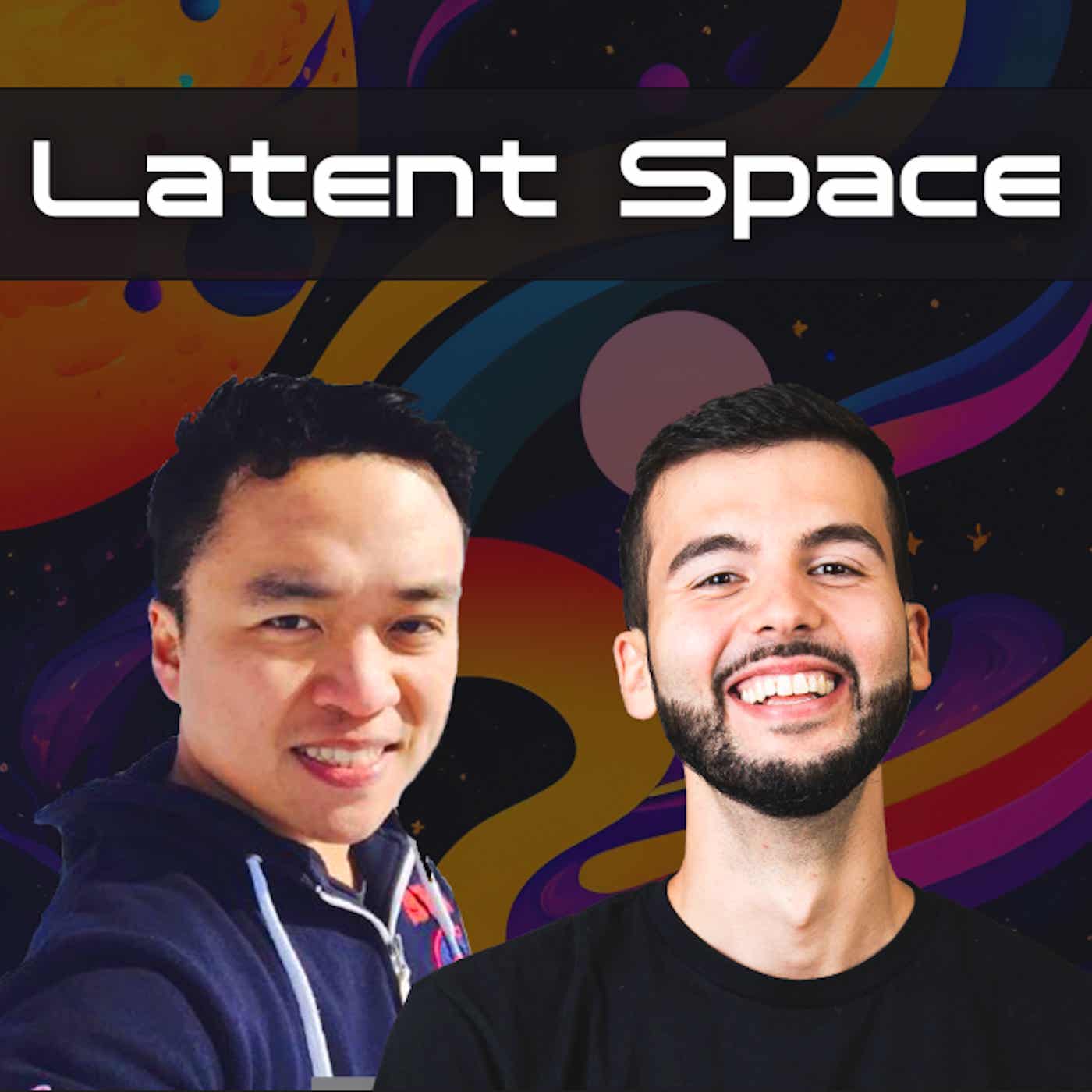The "Normsky" architecture for AI coding agents — with Beyang Liu + Steve Yegge of SourceGraph
Description
We are running an end of year survey for our listeners. Let us know any feedback you have for us, what episodes resonated with you the most, and guest requests for 2024!
RAG has emerged as one of the key pieces of the AI Engineer stack. Jerry from LlamaIndex called it a “hack”, Bryan from Hex compared it to “a recommendation system from LLMs”, and even LangChain started with it.
RAG is crucial in any AI coding workflow. We talked about context quality for code in our Phind episode. Today’s guests, Beyang Liu and Steve Yegge from SourceGraph, have been focused on code indexing and retrieval for over 15 years. We locked them in our new studio to record a 1.5 hours masterclass on the history of code search, retrieval interfaces for code, and how they get SOTA 30% completion acceptance rate in their Cody product by being better at the “bin packing problem” of LLM context generation.
Google Grok → SourceGraph → Cody
While at Google in 2008, Steve built Grok, which lives on today as Google Kythe. It allowed engineers to do code parsing and searching across different codebases and programming languages. (You might remember the infamous Google Platforms Rant from Steve’s time at Google, and his 2021 followup on GCP).
Beyang was an intern at Google at the same time, and Grok became the inspiration to start SourceGraph in 2013. The two didn’t know eachother personally until Beyang brought Steve out of retirement 9 years later to join him as VP Engineering. Fast forward 10 years, SourceGraph has become to best code search tool out there and raised $223M along the way.
Nine months ago, they open sourced SourceGraph Cody, their AI coding assistant. All their code indexing and search infrastructure allows them to get SOTA results by having better RAG than competitors:
* Code completions as you type that achieve an industry-best Completion Acceptance Rate (CAR) as high as 30% using a context-enhanced open-source LLM (StarCoder)
* Context-aware chat that provides the option of using GPT-4 Turbo, Claude 2, GPT-3.5 Turbo, Mistral 7x8B, or Claude Instant, with more model integrations planned
* Doc and unit test generation, along with AI quick fixes for common coding errors
* AI-enhanced natural language code search, powered by a hybrid dense/sparse vector search engine
There are a few pieces of infrastructure that helped Cody achieve these results:
Dense-sparse vector retrieval system
For many people, RAG = vector similarity search, but there’s a lot more that you can do to get the best possible results. From their release:
"Sparse vector search" is a fancy name for keyword search that potentially incorporates LLMs for things like ranking and term expansion (e.g., "k8s" expands to "Kubernetes container orchestration", possibly weighted as in SPLADE):
* Dense vector retrieval makes use of embeddings, the internal representation that LLMs use to represent text. Dense vector retrieval provides recall over a broader set of results that may have no exact keyword matches but are still semantically similar.
* Sparse vector retrieval is very fast, human-understandable, and yields high recall of results that closely match the user query.
* We've found the approaches to be complementary.
There’s a very good blog post by Pinecone on SPLADE for sparse vector search if you’re interested in diving in. If you’re building RAG applications in areas that have a lot of industry-specific nomenclature, acronyms, etc, this is a good approach to getting better results.
SCIP
In 2016, Microsoft announced the Language Server Protocol (LSP) and the Language Server Index Format (LSIF). This protocol makes it easy for IDEs to get all the context they need from a codebase to get things like file search, references, “go to definition”, etc.
SourceGraph developed SCIP, “a better code indexing format than LSIF”:
* Simpler and More Efficient Format: SCIP utilizes Protobuf instead of JSON, which is used by LSIF. Protobuf is mor
More Episodes
Alessio will be at AWS re:Invent next week and hosting a casual coffee meetup on Wednesday, RSVP here! And subscribe to our calendar for our Singapore, NeurIPS, and all upcoming meetups!
We are still taking questions for our next big recap episode! Submit questions and messages on Speakpipe here...
Published 11/15/24
Published 11/15/24
We are recording our next big recap episode and taking questions!
Submit questions and messages on Speakpipe here for a chance to appear on the show!
Also subscribe to our calendar for our Singapore, NeurIPS, and all upcoming meetups!
In our first ever episode with Logan Kilpatrick we called out...
Published 11/11/24


